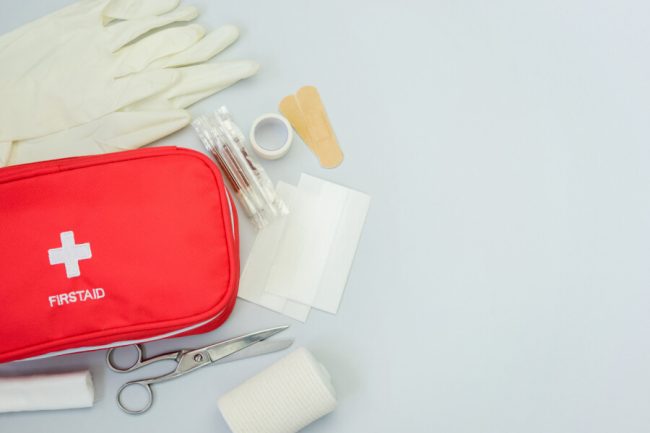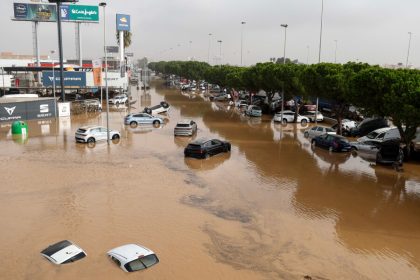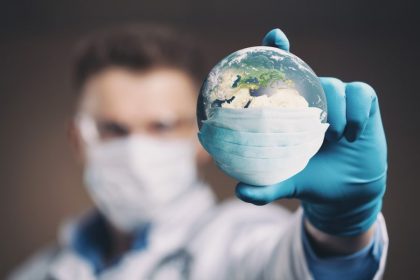Flooding occurs as a result of events. This can happen quickly when there are heavy downpours of Torrential Rains that overflow rivers and cause widespread flooding, with potential health risks, for people and local areas.
Living in an area, to floods, or just wanting to stay safe requires awareness of the health risks associated with floods. Being prepared for Torrential Rains.
The Health Risks Associated with Floods
Physical and mental health can be affected by floods caused by torrential rains. The first step in being safe during floods is to be aware of the risks of torrential rains.
Waterborne Diseases and Pollution
Floodwaters can be polluted with harmful pathogens from chemicals, and other pollutants, especially after torrential rains. This pollution can lead to various waterborne diseases, including:
- Gastroenteritis: Often caused by bacteria such as E. coli or Salmonella, gastroenteritis can result in severe diarrhea, vomiting, and dehydration. It is important to avoid consuming food or water that may have come into contact with floodwaters, especially after torrential rains.
- Hepatitis A: This infection affects the liver and can spread through polluted water or food. Symptoms may include fatigue, nausea, abdominal pain, and jaundice.
- Leptospirosis: Transmitted through contact with polluted water, this bacterial infection can cause flu-like symptoms and, in severe cases, liver and kidney damage. Be particularly cautious after heavy torrential rains, as the likelihood of exposure increases.
Avoid drinking or coming into contact with floodwater, especially after torrential rains, and make sure that water used for drinking, cooking, and bathing is safe to minimize your risk of these diseases. Always boil water if you think it might have pollution.
Physical Injuries and Risks
Moreover, torrential rains present physical risks that can lead to injuries. Some common risks include:
- Drowning: Floodwaters can rise quickly, especially during torrential rains, which are difficult to escape. Always pay attention to evacuation warnings and avoid flooded areas. If you find yourself in a flood situation, do not attempt to drive through moving water; even a small amount can move away a vehicle.
- Slips and Falls: Wet and unstable ground can lead to slips and falls, causing breakage. It’s essential to be aware of your footing when heading through any water-affected area, particularly after torrential rains.
- Debris Injuries: Floodwaters have the ability to move objects, around which could result in people getting hurt by falling items or sharp debris so it’s best to stay from construction zones or places with a lot of scattered debris after a flood occurs.
Mental Health Impacts of Flooding
The impact of flooding, on well-being can lead to troubles and psychological challenges.
After experiencing severe weather conditions people may experience anxiety, depression, or post-traumatic stress disorder (PTSD) following a flood event, such as torrential rains that lead to catastrophic flooding.
It’s important to recognize the mental health impacts of torrential rains and seek support if needed.
To reduce feelings of isolation through torrential rains, engage in community recovery groups, and maintain connections with friends and family.
Precautions Before a Flood Occurs
Preparation is key to staying safe during torrential rains. Here are some important steps to take before a flood event:
Creating an Emergency Health Kit
An emergency health kit can be a lifesaver during a flood caused by torrential rains. Essential items to include are:
- First Aid Supplies: Additionally, make sure you bring some band-aids, antiseptic wipes, gauze, and adhesive tape. If your family members need supplies, they must be brought.
- Prescription Medications: Be stocked with any important medications that you could require. Keep these medicines in waterproof containers to prevent flooding from destroying them.
- Over-the-counter medications: Think of adding items that address gastrointestinal issues that could arise from polluted food or water.
- Water and Non-Perishable Food: Buy some bottled water and food that will keep for a couple of days and does not need prep time. Plan for at least one gallon of water per person, per day for at least three days
Important Medical Records and Medications
Store a record of essential medical information like vaccination records in a waterproof container.
This will help ensure you have access to necessary health information if you need medical assistance during or after a flood, particularly after torrential rains.
Community Preparation Programs
Preparation programs and resources should be available in many of the communities. Find out what risks are common in your area and how they can assist you by reaching out to your local emergency management offices.
Join local training sessions or workshops to learn about emergency protocols. This proactive approach can greatly improve your readiness for severe weather events, especially those involving torrential rains.
Safety Practices During Flood Conditions
Torrential rains can cause flooding or even when there is a flood warning, precaution needs to be taken to prevent yourself and loved ones from getting killed or injured.
Avoiding Direct Contact with Floodwater
Floodwater can be risky due to pollution, especially after torrential rains. Avoid wading through or swimming in floodwaters, as they may contain harmful bacteria, chemicals, or sharp waste.
Avoid contact with floodwater; if you have to, wear rubber boots and gloves. After contact, wash your hands well with soap and clean water.
Recognizing Warning Signs for Health Risks
Be aware of signs of health risks during flooding, including:
- Foul Odors: Unpleasant smells may indicate pollution. Evacuate the area immediately if you smell sewage or chemical odors.
- Skin Rashes or Irritation: If you develop rashes or skin irritations after contact with floodwater, seek medical attention. Early treatment can be the key to prevention of more serious health problems.
- Increased Mosquito Activity: Standing water can become a breeding ground for mosquitoes, which can spread diseases like West Nile virus and Zika virus. If you are in an area with standing water, use mosquito repellent and wear protective clothing.
Evacuation Protocols and Medical Assistance
Follow evacuation orders from local authorities and seek higher ground if you are in a flood zone.
Plan to access medical facilities as soon as it is safe to do so if you or someone in your household has a medical condition that requires immediate attention.
Consider coordinating with friends or family who may be able to assist in an evacuation.
Post-Flood Health and Safety Guidelines
After the floodwaters recede, it’s important to take specific actions to ensure continued health and safety.
Assessing Flood Damage and Health Risks
Inspect your home for flood damage, looking for signs of structural integrity issues and polluted areas.
If your home has been flooded, do not return until local authorities declare it safe. The presence of electrical risks and unstable structures can pose serious risks, especially after torrential rains.
Cleaning and Sanitizing Affected Areas
If it is safe to return, begin cleaning and sanitizing affected areas as soon as possible. Wear appropriate protective equipment and follow surface disinfection guidelines for the elimination of pathogens.
- Mold Cleanup: Mold can develop within 24-48 hours of flooding, especially after torrential rains. Throw away items that cannot be cleaned and disinfected, such as carpets, upholstered furniture, and mattresses. Seek medical attention immediately if you experience difficulty breathing during cleaning.
- Polluted Belongings: Discard carpets, upholstered furniture, mattresses, and other items that cannot be cleaned and disinfected. These items can harbor bacteria and mold, posing health risks.
Long-term Health Considerations After a Flood
Flooding can have long-term health implications. Monitor for ongoing health issues, such as respiratory problems or mental health concerns. Keep communication lines open with healthcare providers and mental health resources.
Monitoring for Ongoing Health Issues
Pay attention to any new or recurring health issues that may arise after a flood. If you experience symptoms related to respiratory health, such as coughing or difficulty breathing, seek medical advice promptly.
Accessing Mental Health Resources
If you or someone you know is struggling with the emotional consequences of a flood, consider seeking support from mental health professionals or community resources. Many organizations offer counseling services to help individuals cope with trauma.
Conclusion
Floods, particularly those caused by torrential rains, can pose serious health risks, but with the right knowledge and preparation, you can protect yourself and your loved ones.
Understanding the potential health risks, taking proactive measures before and during floods, and ensuring safe recovery practices are important steps in safeguarding your well-being.
By being informed and prepared, you can navigate the challenges of flooding with confidence and resilience. Stay safe, stay informed, and prioritize your health during these unpredictable events.
FAQs
How can you stay safe during floods?
Stay informed about local weather conditions, create an emergency plan, and avoid flooded areas.
How to survive during floods?
Follow evacuation orders, seek higher ground, and avoid contact with floodwater.
What is the stay-safe message for floods?
Stay informed, prepare in advance, and prioritize your health and safety.
What to wear during floods?
Wear waterproof boots, gloves, and protective clothing if you need to be in or near floodwater.







